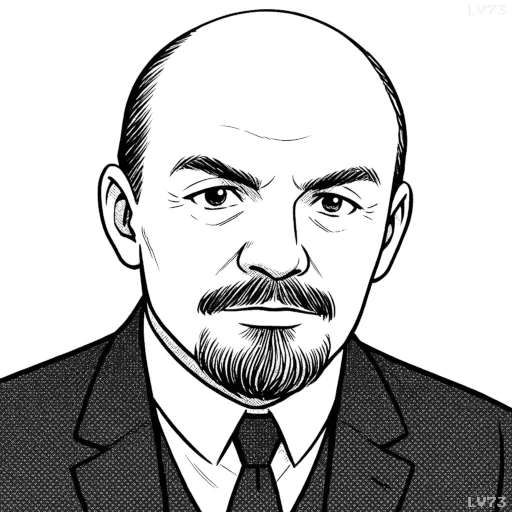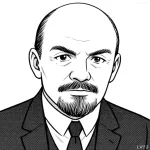“While the State exists there can be no freedom; when there is freedom there will be no State.”

- April 22, 1870 – January 21, 1924
- Born in the Russian Empire
- Revolutionary, political theorist, lawyer, state leader
table of contents
Quote
“While the State exists there can be no freedom; when there is freedom there will be no State.”
Explanation
This quote expresses Lenin’s belief that the state, by its very nature, is an instrument of domination and coercion, which contradicts true freedom. According to Lenin, freedom cannot exist as long as a hierarchical, state apparatus is in place, as the state enforces laws, regulations, and systems that limit the autonomy of individuals and classes. He argued that only in a society that abolishes class distinctions and the need for coercive authority can genuine freedom be realized. The ideal of communism, in Lenin’s view, was a stateless society where individuals could live without the need for oppressive governmental structures.
Lenin’s position was rooted in Marxist theory, which posits that the state is a product of class society, existing to protect the interests of the ruling class. In a socialist society, after the working class had seized power, Lenin saw the state as a temporary institution that would eventually “wither away” as class distinctions were eliminated. This would lead to a stateless, classless society — communism — where true freedom, untainted by the need for coercion or control, could flourish. He believed that the state’s eventual dissolution would mark the triumph of real freedom.
In modern terms, this quote can be seen as a critique of the state’s role in maintaining social order at the expense of personal liberties. Contemporary libertarian and anarchist thought often echoes Lenin’s sentiment, arguing that governments inherently limit freedom through laws, surveillance, and policing. However, Lenin’s perspective also invites debate about the balance between state authority and personal freedom — especially in contexts where the state is seen as necessary for safeguarding public order, justice, and welfare. Lenin’s view is a radical challenge to the idea that the state is a benign or necessary force in society.
Would you like to share your impressions or related stories about this quote in the comments section?
